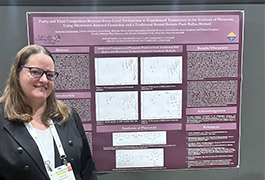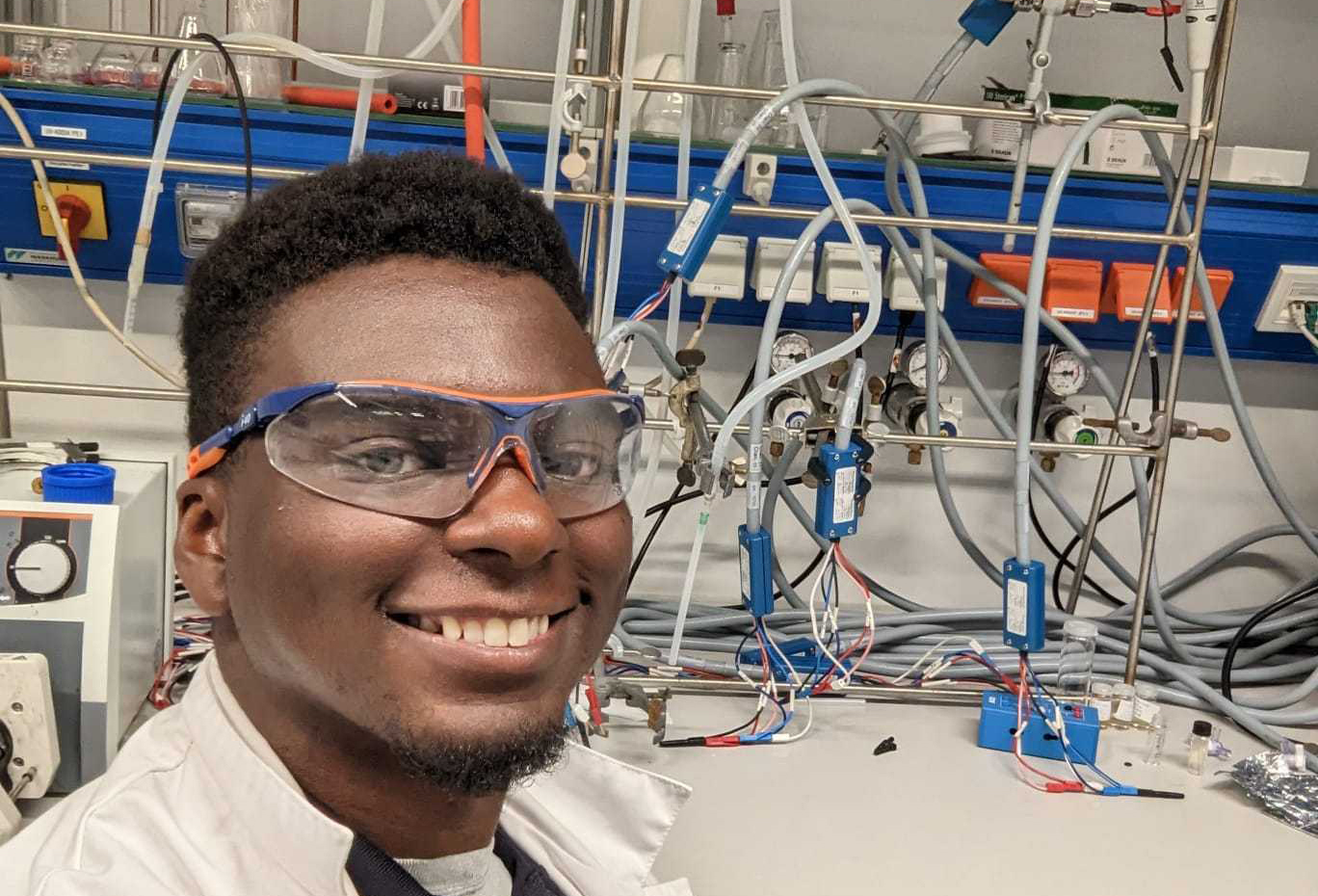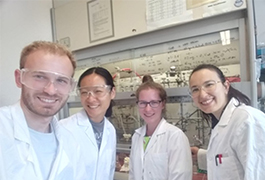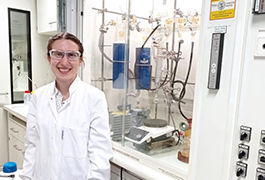How a Research Competition Uncovered My Leadership Skills
Going to the finals of the Community College Innovation Challenge (CCIC) was a life-changing experience I almost never had. CCIC is an annual innovation competition that seeks to encourage innovation and entrepreneurship in community college science, technology, engineering, and math (STEM).
The competition is sponsored by the National Science Foundation and the American Association of Community Colleges. Together, they select 10 student-lead teams of three to five students from more than 1,000 community colleges in the United States. Finalists attend a four-day innovation and entrepreneurship “boot camp” in Arlington, VA, and Washington, D.C.
A huge part of the boot camp is preparing for a poster session held on Capitol Hill, where we presented our innovative ideas before congressmen, businessmen, scientists, and other professionals. On the final day of the boot camp, teams vie for 1st and 2nd place by pitching their ideas to a panel of four judges comprised of inventors, CEOs, and professionals. Participating as a finalist with my team was something that has impacted me strongly in both my professional career and personal endeavors.
Project WaterFED
The project I presented was called Project WaterFED, which stands for “Water Filtration and Economic Development.” My project’s goal was to equip communities around the world with tools to recycle locally discarded plastics into water filters—essentially turning plastic waste that nobody wants into clean water that everyone needs.
At its root, the project centered on relationships. We built connections with humanitarian organizations to overcome cultural barriers in communities in order to provide support to people. The same philosophy that guided the project was also critical in the development of our own project team. Without a team, this project never would have been anything more than just an idea.
Deciding to join the CCIC was a big decision for me. Although I had experience working with teams and starting small programs, I had never launched a team to rigorously work on a project of my own choosing. Despite having some reservations, I made the decision that I was going to do this, and I was going to find a way to overcome my trepidation. Choosing to make the commitment alleviated many of the fears I had about the project. I did not know how I was going to do everything at that moment, but the uncertainty propelled me forward to tackle the problems I now faced as a project manager—the primary problem being: forming a team!
All the members of my team came from my college (Corning Community College), which was one of the requirements for the challenge. My team members were people I already knew and had worked with in the past. In retrospect, I realize that I did have the resources to form a team, but the fear of committing to the project made me blind to it. Once actually embarking on the challenge, I was able to better outline the problems we were facing with the project and map out ways to address them. Due to the nature of these issues, I assembled a team that reflected the myriad aspects we needed to tackle.
Fresh perspectives
Working on the project with such a diverse team was a fantastic experience, as it gave all of us different perspectives by which to approach problems. The biggest problems we worked on together were making filter materials from discarded organic waste that could safely be discarded into local environments, developing a simple-to-assemble water filtration system, and making a user-friendly project website.
As project manager, I learned that to make an interdisciplinary team like mine succeed in solving these problems, I had to be constantly willing to learn from each member on the team. I found ways to contribute tangibly to my teammates’ tasks. Once I expressed interest, my fellow team members were gracious and excited to show me what exactly they did. Because of this, I was able to learn some of the basics of how to manage such things as a web server and a machine shop lathe, and I picked up new skills that I may have never acquired otherwise. I learned how to address future problems based on our collective experience and from my teammates’ points of view. This also impacted my management style, as I could better appreciate my fellow members’ contributions to the project.
Our work attracted much interest in our local area and, as a result, we found ourselves speaking to people from many backgrounds about our project. I quickly learned how to concisely communicate the critical aspects of the project to anyone at any time in a way that was very similar to an elevator pitch.
For example, rather than going into details of saying how we created activated carbon by pyrolyzing discarded biomaterials and then activating them with various salts to develop the filtration system, I would summarize the process. I explained that we burn coconut shells at high temperatures to create carbon and then soak the carbon in chemicals, such as table salt. The ability to convey complicated ideas to a person on the street or a scientist in my field, regardless of their background, has proven a tremendous asset to me, and especially for my team when we presented on Capitol Hill.
New directions
Since CCIC, all of the team members have moved in different directions to pursue college degrees or careers, so we decided to put Project WaterFED on hiatus. But there is no way any of us can deny the rich lessons we learned while on the team.
Working on this project gave me so much experience into how to be an effective project manager, and even helped me understand where my passions lie. In the course of working on the project, I discovered that I had a passion for entrepreneurship and am currently exploring how to start my own company to someday provide tools to relief workers throughout the world. I have since transferred to Georgia Tech, where I am part of the Create-X startup program and cofounder of a project focused on serving individuals with mental illness. I have already been able to apply what I learned from managing Project WaterFED to this new endeavor.
Overall, this project has given me a new perspective on how to approach future endeavors. I have learned how to work and communicate with people of different backgrounds effectively, which has significantly enriched my management style and life. I encourage anyone to pursue their own projects and goals, no matter how difficult they may appear. For me, what started as a simple general chemistry honors project took me all the way to Capitol Hill. So, always do the best you can—where you are and where you can—because you never know where it may take you.




